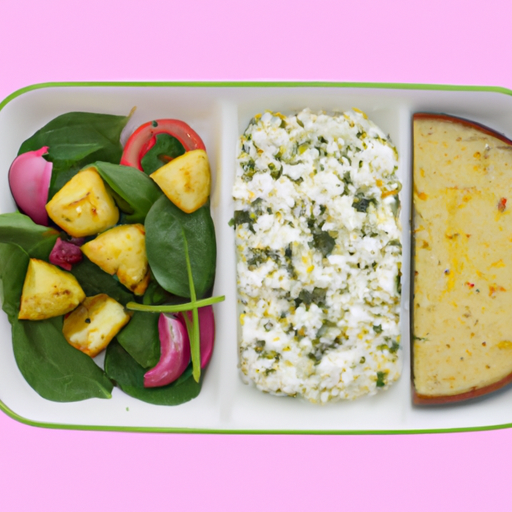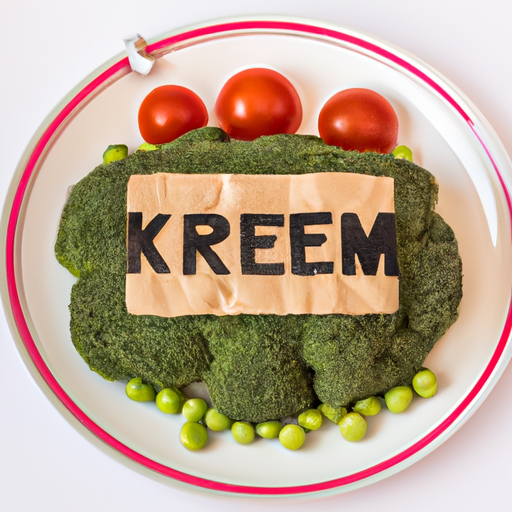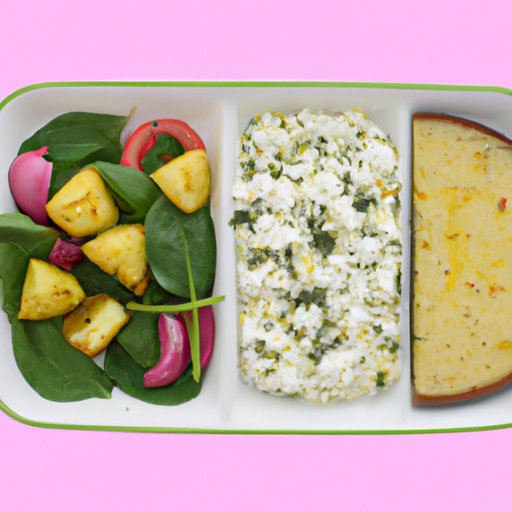Are you a bit confused about the difference between a vegan and a vegetarian diet? Well, you’re not alone! Many people often use these terms interchangeably, but they actually have distinct meanings. In this article, we’ll dive deeper into the differences between the two and help you understand their unique approaches to food. By the end, you’ll have a clearer understanding of what it means to follow a vegan or vegetarian diet. So, let’s get started!
Let’s start by discussing what it means to be a vegetarian. A vegetarian is someone who does not consume meat, poultry, or seafood. However, they might still include dairy products, eggs, and honey in their diet. Vegetarians usually make this dietary choice for various reasons, such as ethical concerns for animal welfare or health benefits associated with reducing meat consumption.
In contrast, a vegan takes things a step further. A vegan eliminates all animal products from their diet, including not only meat, poultry, and seafood but also dairy, eggs, honey, gelatin, and even some food additives. Vegans often follow this lifestyle for ethical, environmental, and health reasons. They believe in avoiding any exploitation of animals and promoting a more sustainable and compassionate way of living.
Stay tuned for our upcoming article where we will explore the health benefits, challenges, and potential nutrient deficiencies associated with both vegan and vegetarian diets. So, whether you’re considering adopting one of these diets or simply curious about the differences, we’ve got you covered. Keep reading to learn more!
Introduction
If you’ve ever found yourself wondering what the difference is between a vegan and a vegetarian diet, you’ve come to the right place. In this article, we will explore the definition of both diets, discuss their health benefits, examine their environmental impact, and address the common challenges faced by those who choose to follow these lifestyles. By the end, you will have a clear understanding of what it means to be a vegan or a vegetarian and how each diet can positively affect your health and the world around you.
Definition of a Vegan Diet
A vegan diet is a plant-based diet that excludes all animal products. This means that vegans do not consume meat, fish, poultry, dairy, eggs, honey, or any other animal-derived ingredient. The focus of a vegan diet is on consuming a variety of plant-based foods, such as fruits, vegetables, whole grains, legumes, nuts, and seeds. By avoiding all animal products, vegans aim to reduce harm to animals and promote a more sustainable and compassionate lifestyle.
No Animal Products
The key distinguishing factor of a vegan diet is the complete elimination of animal products from one’s menu. This includes not only the meat that most people associate with a traditional diet, but also dairy and eggs. By avoiding these animal-derived ingredients, vegans are able to support animal rights and minimize their negative impact on animals and the environment.
Focus on Plant-based Foods
While avoiding animal products, vegans place a strong emphasis on consuming plant-based foods. These include fruits, vegetables, whole grains, legumes, nuts, and seeds. Plant-based foods provide essential nutrients and can help prevent chronic diseases when consumed in appropriate amounts. The variety and versatility of plant-based foods make it possible for vegans to have a diverse and satisfying diet without compromising their ethical beliefs.

Definition of a Vegetarian Diet
A vegetarian diet, on the other hand, does not include meat or fish, but may include dairy and eggs. Vegetarians choose to eliminate meat and fish from their diet for various reasons, such as ethical concerns, health benefits, or environmental sustainability. While they do not strictly follow a plant-based diet like vegans, vegetarians still prioritize consuming a majority of their food from plant-based sources.
No Meat or Fish
Similar to vegans, vegetarians do not consume meat or fish. These animal products are substituted with plant-based alternatives, such as tofu, tempeh, seitan, and other meat substitutes made from soy or wheat gluten. Vegetarians may choose to eliminate meat and fish from their diet due to ethical reasons, health concerns, or personal preferences.
May Include Dairy and Eggs
One distinction between a vegetarian and a vegan diet is the inclusion of dairy and eggs in the former. Vegetarians often consume dairy products like milk, cheese, and yogurt, as well as eggs. These animal-derived foods provide a source of protein and other essential nutrients, making it easier for vegetarians to meet their nutritional needs without relying solely on plant-based sources.
Health Benefits of Vegan Diet
There are several health benefits associated with a vegan diet. By focusing on plant-based foods and avoiding animal products, vegans can experience the following improvements in their overall well-being:
Lower Risk of Heart Disease
Research has shown that a vegan diet can significantly reduce the risk of heart disease. By excluding animal products, which are high in saturated fats and cholesterol, and increasing the consumption of fruits, vegetables, and whole grains, vegans can lower their blood pressure, cholesterol levels, and overall risk of cardiovascular problems.
Reduced Risk of Certain Cancers
Studies have also indicated that vegans have a reduced risk of certain types of cancer, including colon, breast, and prostate cancers. Plant-based foods provide a rich source of antioxidants, fiber, and phytochemicals, which can help prevent cellular damage and reduce the likelihood of cancer development.
Improved Digestion
A vegan diet, rich in fiber from fruits, vegetables, and whole grains, promotes healthy digestion. Fiber aids in maintaining regular bowel movements, preventing constipation, and supporting a healthy gut microbiome. Additionally, the high water content in plant-based foods can also help prevent digestive issues and promote healthy hydration.

Health Benefits of Vegetarian Diet
While a vegetarian diet differs slightly from a vegan diet, it also offers several health benefits. By eliminating meat and fish, vegetarians can experience the following positive impacts on their health:
Lower Blood Pressure
Research has shown that vegetarians tend to have lower blood pressure compared to individuals who consume a diet that includes meat. This is attributed to the lower intake of saturated fats and cholesterol found in animal products. By relying on plant-based foods, vegetarians can naturally lower their blood pressure and reduce the risk of hypertension.
Weight Management
A vegetarian diet can also aid in weight management. Plant-based foods tend to be lower in calories and higher in fiber, which can help individuals feel satisfied and maintain a healthy weight. Additionally, vegetarians often consume fewer unhealthy fats and processed foods, further contributing to weight control and overall well-being.
Lower Risk of Diabetes
Studies have indicated that vegetarians have a lower risk of developing type 2 diabetes compared to individuals who consume a non-vegetarian diet. The high fiber content found in plant-based foods can regulate blood sugar levels and improve insulin sensitivity, reducing the risk of insulin resistance and diabetes.
Environmental Impact of Vegan Diet
In addition to the health benefits, a vegan diet also has a positive impact on the environment. By avoiding animal products, vegans contribute to the following environmental advantages:
Reduced Greenhouse Gas Emissions
Animal agriculture, particularly livestock farming, is a significant contributor to greenhouse gas emissions. By opting for a vegan diet, individuals can help reduce these emissions, as livestock production requires large amounts of land, water, and energy. Cutting out animal products from your diet can significantly reduce your carbon footprint.
Preservation of Natural Resources
Raising animals for food requires significant amounts of water, land, and other resources. By adopting a vegan lifestyle, you can help conserve these resources for future generations. The cultivation of plant-based foods requires fewer resources compared to animal agriculture, making it a more sustainable choice for the planet.
Decreased Deforestation
The expansion of animal agriculture, particularly for livestock production, is a leading cause of deforestation in many parts of the world. By eliminating animal products from your diet, you can contribute to the preservation of forests and the protection of biodiversity. Plant-based diets have a lower environmental impact and can help mitigate deforestation.
Environmental Impact of Vegetarian Diet
While a vegetarian diet may not have as significant of an impact on the environment as a vegan diet, it still offers some environmental benefits. By choosing to eliminate meat and fish from your diet, you can contribute to the following:
Reduced Carbon Footprint
Animal agriculture is a major source of greenhouse gas emissions, and by reducing or eliminating the consumption of meat and fish, vegetarians can help lower their carbon footprint. While dairy and egg production also contribute to emissions, choosing a vegetarian diet still results in a smaller carbon footprint compared to a diet that includes meat.
Water Conservation
Water scarcity is a global concern, and animal agriculture requires vast amounts of water for livestock production and crop irrigation. By adopting a vegetarian diet, individuals can help conserve water resources, as plant-based foods generally have a lower water footprint compared to animal products.
Protection of Biodiversity
The expansion of animal agriculture often leads to the destruction of natural habitats, which results in the loss of biodiversity. By choosing plant-based foods over meat and fish, vegetarians can contribute to the protection of ecosystems, wildlife, and the preservation of diverse plant and animal species.
Common Challenges for Vegans
While there are many benefits to adopting a vegan lifestyle, there are also some common challenges that vegans may encounter:
Ensuring Proper Nutrient Intake
Eliminating animal products from your diet can require careful planning to ensure you are meeting all of your nutritional needs. Vegans must pay attention to consuming adequate amounts of protein, iron, calcium, vitamin B12, and omega-3 fatty acids. It may be necessary to incorporate fortified foods or supplements into your diet to ensure you are getting these essential nutrients.
Finding Vegan-Friendly Restaurants and Products
While the availability of vegan options is increasing, it can still be a challenge to find vegan-friendly restaurants and products, especially in certain areas or when traveling. Vegans may need to research and plan ahead to ensure they have access to suitable food options while dining out or shopping.
Common Challenges for Vegetarians
Vegetarians may also face some challenges when it comes to their dietary choices:
Navigating Social Situations
In social settings, vegetarians may encounter situations where there are limited or no meat-free options available. This can make it challenging to stick to their dietary preferences without feeling awkward or inconvenienced. Communicating your dietary needs ahead of time and offering to bring a dish can help alleviate this issue.
Getting Enough Protein
Protein is an essential nutrient, and vegetarians must ensure they are getting enough from plant-based sources. While there are plenty of plant-based protein options available, vegetarians may need to be mindful of their protein intake and include a variety of protein-rich foods in their diet, such as legumes, tofu, tempeh, quinoa, and nuts.
Conclusion
In conclusion, the difference between a vegan and a vegetarian diet lies in the exclusion of animal products. While both diets focus on predominantly plant-based foods, vegans avoid all animal products, including meat, fish, dairy, and eggs, while vegetarians may include dairy and eggs in their diet. Both diets offer various health benefits and contribute to reducing environmental impact.
By choosing a vegan or vegetarian lifestyle, you can make a positive impact on your health and the planet. However, it is important to address the challenges that may arise, such as ensuring proper nutrient intake and navigating social situations or finding suitable food options. Ultimately, the choice between a vegan and a vegetarian diet is a personal one, and it’s important to choose a lifestyle that aligns with your values, health goals, and dietary preferences.
